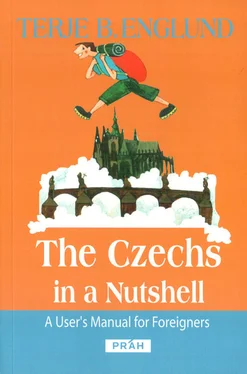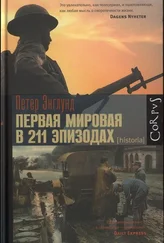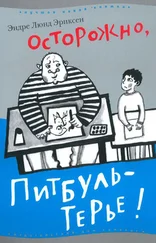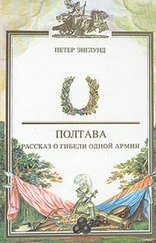Another objection is that Charter 77 was a social club reserved for Prague intellectuals with personal connectionsto Václav Havel and his theatre friends. This is also a rather handy excuse. Intellectuals were admittedly represented in large force, but on the list of signatories published after the Velvet Revolution there are surprisingly many railway workers, housewives, cooks and other completely ordinary people who simply saw the Charter as a way to react against the widespread moral corruptionthat characterized the Husák era.
Only the allegations about Pragocentricism can be said to have some substance. People in Moraviahate to admit it, but the Czech elite has always been based in the capital. So were the Charter signatories, who moreover found it easier to help and support each other in Czechoslovakia’s only city with more than a million inhabitants. It’s fair to say that the number of Charter people became smaller and smaller the farther away you got from Prague, and to find Slovak signatories, you almost needed a magnifying glass.
Today, Charter 77 definitely belongs to history. The movement was formally dissolved in the mid-1990s, and most of the signatories who entered politics in the wake of the Velvet Revolution, have left their offices. Symbolically, the most loaded change took place in the spring of 2003, when Charter 77’s co-founder Václav Havel was replaced as the Czech Republic’s president by Václav Klaus, a sly technocrat, who openly questions whether Charter had any political impact at all.
But that question is somewhat misplaced. The philosopher Jan Patočka, the Charter’s spiritual guru who died from a heart attack during a 10-hour interrogation by the secret police, warned from the very beginning that Charter 77 had more to do with morality than politics. And that warning fits perfectly also as an epitaph:
To the millions of decent people who, for better or worse reasoning, never dared to protest openly against the Bolshevik regime, Charter 77 proved that the Czechs were not a nation of spineless Švejkswho would support any rotten regime that happened to be in power (see: National Identity). Of course, there is also a not-insignificant part of the population who detest everything connected to the Charter 77, because it constantly reminds them of their own lack of courage.
Do you know who was the first to reach the North Pole? Who also projected the Panama canal, invented both yoghurt and the forerunner of Internet, made numerous revolutionary discoveries in chemistry and engineering, wrote several brilliant dramatic plays and symphonies and, in addition to that, inspired people such as Einstein, Chekhov and Zeppelin in their work? None other than the universal genius Jára Cimrman!
It has never been established exactly when the incredibly gifted Jaroslav (Jára among friends) was born. Since the priest responsible for the local church register was allegedly drunk, both 1853 and 1864 figure as his year of birth. However, it’s undisputed that Bohemiaand Moravia, at the time Cimrman was born were still a part of the Austro- HungarianEmpire.
It has also been established that his mother was an Austrianactress, Marlén Jelínková, while his father a Czech tailor named Leopold Zimmermann (quite typically for the ethnic and cultural mixture that prevailed in the Habsburg Empire, Cimrman’s Germanic mother had a Slavonic name while his Czech father had a Germanone).
However, as it often goes in Central Europe, people with bi-national parentage tend to become bigger nationalists than those with both parents of the same nationality. In Jára’s case, he became an ardent Czech patriot, who insisted that his über-German surnameshould be treated as a Slavonic one. But this is pretty much all we originally know about him, because in 1914, by the outbreak of the First World War, Cimrman disappeared from the surface of earth. Only in 1966 was a trunk with his belongings accidentally discovered in the village of Liptákov. Thus, the pantheon of Czech national heroeshad suddenly been enlarged with one of human history’s most extraordinary personalities.
As you might already have guessed, Jára Cimrman is a pure mystification, created by two journalists in Czechoslovak Broadcasting for a radio program that was released in 1966.
But contrary to all expectations, the listeners’ response to the program about the unknown genius was so overwhelming that one of the radio journalists, Zdeněk Svěrák (also known as the author of the screenplay of the Oscar-winning film “Kolja”), decided to transform the gag into a theatre play. So in 1967, with assistance from his friend, the director Ladislav Smoljak, Svěrák staged The Act — “a play that was found among the unknown genius Jára Cimrman’s belongings” — in a theatre in Prague’s Malá Strana.
The Act was a tremendous success. People loved the wild exaggerations about the Czech giant-cum-patriot and all his crazy adventures from the days of the Austro-Hungarian Empire. Of course, it was no less fun that all the actors were clumsy and nervous amateurs, and that the play was opened by an ultra-scientific seminar about Cimrman and his life and adventures given by “Professor” Smoljak and “Docent” Svěrák (see: Academic Titles).
Four decades and 13 plays later, Jára Cimrman has become something like the quintessence of Czech humor and national identity. People queue up for hours to get tickets to his plays (like The Act , all of the others have also been written by Smoljak and Svěrák), which have been performed at the Jára Cimrman Theatre in Prague’s Žižkov district for many years.
The most ardent fans have learnt entire passages from different Cimrman plays by heart, and “cimrmanologists” compete in reeling off the longest and funniest quotations from the 14 plays. To honour the great Czech, several cities have even installed plaques announcing that “Jára Cimrman once slept in this house” or “In this house, the Czech universal genius Jára Cimrman once had breakfast”.
Foreignersmay find the Czechs’ Cimrman craze strange. When the ensemble turned up at a theatre festival in Austria some years ago, the festival’s director immediately threw the Cimrman gang out, shouting that “these Czech dilettantes” were a disgrace to the performing arts. Yet the actors’ profound amateurism is probably one of the reasons why the Czechs love the Cimrman figure. In fact, the very concept is a manylevelled parody: the actors are making fun of themselves and their lack of professionalism, the Cimrman figure is making fun of “great heroes”, and the fact that the greatest — and also most unfortunate — of them all is actually Czech, is a parody of the nation’s rather modest size and unfortunate destiny.
In other words, Jára Cimrman fully complies with the Czech tradition of not taking yourself too seriously. He also reflects the widespread tendency to regard the country’s many historic debacles as something inflicted by others. In the same way that inexplicable mishaps prevented Cimrman from being awarded all of the Nobel Prizes he undoubtedly deserved, history, bigger countries or scheming neighbours (but under no circumstance the Czechs themselves!) have given the nation a harder fate than it really deserves.
In addition, Svěrák and Smoljak made a brilliant move by placing Cimrman in the Austro-Hungarian Empire (see: Franz Josef). On the one hand, it sated the nostalgia for an era that many Czechs regard as more innocent, lucky and even romantic than the grey normalization in which they lived. On the other hand, Cimrman could make jokes about politics without fearing reprisals from the Communist regime, because it “hadn’t any relevance to the present”.
Читать дальше








![Theresa Cheung - The Dream Dictionary from A to Z [Revised edition] - The Ultimate A–Z to Interpret the Secrets of Your Dreams](/books/692092/theresa-cheung-the-dream-dictionary-from-a-to-z-r-thumb.webp)



